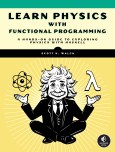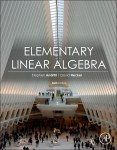2024 TAA Textbook Award Winners Share Insight, Inspiration
By Sierra Pawlak
Fifty-six textbooks were awarded 2024 Textbook Awards by TAA, representing more than 100 authors. We recently reached out to these award-winning authors asking several questions, including how they fit writing time into their schedule, what pedagogical elements in their textbook they are most proud of, and what they wish they had known before they started writing their textbook. We hope their answers provide insight and inspiration for your writing projects.
Why did you decide to write your textbook?
 Brian Wardyga, author of The Video Games Textbook and winner of a Textbook Excellence Award, said: “There was no other book on the market that covered everything in my curriculum and so I decided, ‘If no one else is going to do this, I will do it!’”
Brian Wardyga, author of The Video Games Textbook and winner of a Textbook Excellence Award, said: “There was no other book on the market that covered everything in my curriculum and so I decided, ‘If no one else is going to do this, I will do it!’”
 “I love engaging in the theory-research process, and I have taught a family theories course throughout my career,” said Katherine Allen, author of Family Theories Today: A Critical Intersectional Approach, and winner of a Textbook Excellence Award. “I have learned so much from students about what they need to be successful in the theorizing process. I wanted to write a book that was student-informed as well as exciting, approachable, and useful for students.”
“I love engaging in the theory-research process, and I have taught a family theories course throughout my career,” said Katherine Allen, author of Family Theories Today: A Critical Intersectional Approach, and winner of a Textbook Excellence Award. “I have learned so much from students about what they need to be successful in the theorizing process. I wanted to write a book that was student-informed as well as exciting, approachable, and useful for students.”
How did you decide which publishers to approach with your textbook idea? Can you share any tips for selecting a publisher?
 “We had a book with one publisher, but they stopped paying attention, so we looked for a publisher who was excited about our book,” said Ed Jacobs, author of Group Counseling: Strategies and Skills and winner of a McGuffey Longevity Award.
“We had a book with one publisher, but they stopped paying attention, so we looked for a publisher who was excited about our book,” said Ed Jacobs, author of Group Counseling: Strategies and Skills and winner of a McGuffey Longevity Award.
“For me it was easy, because there are not many publishers out there for academic books on video games,” said Brian Wardyga, author of The Video Games Textbook. “It was mostly Focal Press, CRC Press, and Routledge, which are all under the Taylor & Francis umbrella. My advice for selecting a publisher is to seek out the publisher(s) that specialize in your subject matter, rather than approaching publishers that have never covered your topic and hoping they are ready to expand their scope.”
What strategies do you use to fit writing time into your schedule? How much time do you spend writing each day?

 Scott Walck, author of Learn Physics with Functional Programming and winner of a Most Promising New Textbook Award said: “I arranged my schedule so that Monday, Wednesday, and Friday were teaching days while Tuesday, Thursday, and Saturday were writing days.”
Scott Walck, author of Learn Physics with Functional Programming and winner of a Most Promising New Textbook Award said: “I arranged my schedule so that Monday, Wednesday, and Friday were teaching days while Tuesday, Thursday, and Saturday were writing days.”
“It varies a lot,” said Gregory Lewbart, author of Invertebrate Medicine and winner of a Textbook Excellence Award. “Some days I can use ‘work time’ but most of the effort takes place after hours. I’m fine working in small or big chunks (15 minutes or 5 hours, whatever fits).”
Which pedagogical elements in your textbook are you most proud of?

 Rogan Kersh, author of By the People, Brief Sixth Edition and winner of a Textbook Excellence Award said the pedagogical elements they’re most proud of are “aspects that meet students where they are; my current book project is on the rising generation of teens, college students & recent grads, and it’s a particular pleasure to frame political institutions or policy areas in terms of what ‘Gen Z’ is thinking/doing.”
Rogan Kersh, author of By the People, Brief Sixth Edition and winner of a Textbook Excellence Award said the pedagogical elements they’re most proud of are “aspects that meet students where they are; my current book project is on the rising generation of teens, college students & recent grads, and it’s a particular pleasure to frame political institutions or policy areas in terms of what ‘Gen Z’ is thinking/doing.”
“I am proud of introducing the concept of a platform, of which the textbook is only a component,” said Nader Rifai, author of Tietz Textbook of Laboratory Medicine and winner of a Textbook Excellence Award.
What advice can you share with aspiring textbook authors?
Rogan Kersh, author of By the People, Brief Sixth Edition and winner of the Textbook Excellence Award said: “If you’re in it for the money or glory, don’t do it. If you’re truly passionate about your field, love rendering it in ways students can easily grasp, and hope to spark interest among future physicists or art historians or (in our case) political scientists,  then it’s a wonderfully rewarding enterprise.”
then it’s a wonderfully rewarding enterprise.”
“If you believe you have a better approach to a commonly taught subject, and you think that approach would be shared by many other instructors, you should pursue your dream and write a textbook that incorporates that approach,” said Stephen Andrilli, author of Elementary Linear Algebra and winner of a Textbook Excellence Award.
What did you learn in the process of writing a textbook that you wish you had known before you started?
 Kim Mogilevsky, author of Florida History Makers: My Country and My State, and winner of a Most Promising New Textbook Award said: “The greatest challenge has been allocating the correct amount of time to every task. You don’t know how long something would actually take until you’re going through the process (aka ‘building the plane while flying it’).”
Kim Mogilevsky, author of Florida History Makers: My Country and My State, and winner of a Most Promising New Textbook Award said: “The greatest challenge has been allocating the correct amount of time to every task. You don’t know how long something would actually take until you’re going through the process (aka ‘building the plane while flying it’).”
“I learned a lot of things during the process, but I think it’s ok that I didn’t know them before I started. Just get started!” said Scott Walck, author of Learn Physics with Functional Programming and winner of a Most Promising New Textbook Award.
TAA’s McGuffey Longevity Award recognizes textbooks and learning materials whose excellence has been demonstrated over time. The Textbook Excellence Award recognizes excellence in current textbooks and learning materials. The Most Promising New Textbook Award recognizes excellence in 1st edition textbooks and learning materials. View the full list of 2024 TAA Textbook Award winners.
The 2025 Textbook Award nomination form will open on September 2nd. You can go here for updates.
Please note that all content on this site is copyrighted by the Textbook & Academic Authors Association (TAA). Individual articles may be reposted and/or printed in non-commercial publications provided you include the byline (if applicable), the entire article without alterations, and this copyright notice: “© 2026, Textbook & Academic Authors Association (TAA). Originally published on the TAA Blog, Abstract on [Date, Issue, Number].” A copy of the issue in which the article is reprinted, or a link to the blog or online site, should be mailed to Kim Pawlak 1710 Dondee Road, Madison, WI 53716 or emailed to Kim.Pawlak @taaonline.net.

